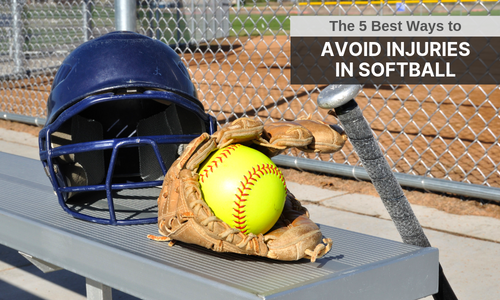5 Best Ways to Avoid Injuries in Softball
Posted by Ringor on Jul 22nd 2019
There are many obstacles softball players face, but none are more frustrating than injuries. With improvements in science and medicine, however, we know so much more about our bodies and how to prevent injuries. With all we know today, learn some ways to avoid injuries in softball.
Stretch
One important thing many athletes ignore is stretching. If you don’t properly stretch before and after a ball game, you run the risk of potentially injuring yourself due to soreness. The best stretches for softball players typically involve your arms and legs. Arm circles and hamstring, quad, and groin stretches are all effective ways to prevent injury. Dynamic stretching is another helpful thing to try before a game.
Warm Up
It is also crucial that you warm up before a game. This includes stretching, but you also want to run and throw a little bit. This will get your body conditioned and ready to go before you play. It is important that you do this because you want to prepare your body for what’s to come and increase your heart rate a bit.
Don’t Overwork Yourself
Getting an adequate amount of rest in between games is also a way to avoid injuries. It is well known that softball players can overwork their throwing arm, especially if you’re a pitcher. Give your arm, and the rest of your body, at least one day to rest. You could also take this opportunity to nurse existing injuries with an ice pack or bath.
Protect Yourself
Getting hit by a softball is not something that you want, whether you’re a pitcher or a batter. While, according to Dummies.com, “[A softball] weighs between 6.25 and 7.00 ounces,” it can still damage you a great deal at high speeds. This is why you want to wear a helmet if you’re batting, pitching, or catching. Pitchers also want to wear cleats with a pitching toe to protect their feet from toe dragging.
Drink Plenty of Water
One final way to avoid injuries in softball is to drink plenty of water. Hydrating is not only important to avoid dehydration, especially in the summer, but it can help ease soreness too. Muscles need to be hydrated to work properly, so drinking water will make them far more efficient.

